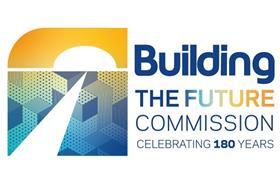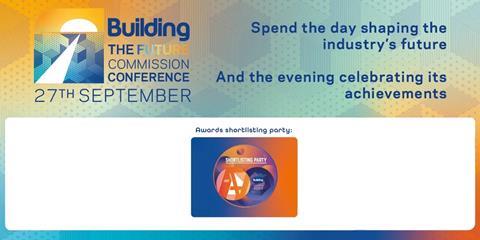The scandal at the CBI is an opportunity for us all to reflect on how we treat each other in the workplace, writes Sadie Morgan

The past few weeks have delivered a rather unwelcome reminder of how much our workplace practices still need to be monitored and reckoned with. The scandal that has erupted from years of alleged misconduct at the Confederation of British Industry (CBI) is a serious caution against resting on our laurels when it comes to workplace conduct.
It has refreshed the checklist for pitfalls that we need to avoid in business settings and painted a dire picture of what can still happen when unsavoury behaviour goes unchecked.

The misbehaviour alleged to have taken place at the CBI is at best deeply problematic, and at worst criminally abusive. Yet the description of its actions as told by the Financial Times – that it “failed to protect its staff, to train its managers, prioritise a healthy workplace culture, and get rid of toxic people” – could easily be applied to smaller-scale, everyday wrongdoing within businesses.
In short, we do not need to reach the catastrophic levels of the CBI before we remind ourselves to consistently audit the way that we treat the people who form part of our staff and professional network.
As far as we believe we have come in pursuing parity and righteousness in our workplaces, we are still governed by that unrelenting bottom line
In her article for The Guardian reflecting on the scandal, Josie Cox made note that “wherever there is money, there is power. And where there is power, abuse – in some form – is frequently still rife.” As such, the goal for any business is to be financially profitable, no matter the size, industry or scope.
But it remains all too frequent that fiscal pursuit renders morality, ethics and equity in the workplace as secondary. As far as we believe we have come in pursuing parity and righteousness in our workplaces, we are still governed by that unrelenting bottom line. And, as a result, we still define our businesses’ “purpose” in a relatively one-dimensional way. This is no longer tenable.
In 2020, a Women in Construction survey conducted by Randstad showed that, out of 4,200 respondents, 72% had experienced gender discrimination in the workplace, with 41% of women saying that they had received inappropriate comments or behaviour from a male colleague. This shows how our industry is not excluded from the problem of gender-related malpractice and, by extension, is plagued with the same set of micro-misconducts that abound throughout the business world.
So long as pay gaps, authority gaps and gender disparity remain the status quo within the workplace, the way remains paved for graver, more damaging incidents to flourish
As such, acts of misbehaviour begin with attitudes and incidences that are not easily registered – transgressions that are small enough not to break any written rules but entrenched enough to upkeep unhealthy cultures of silence and imbalance.
Everything is connected. So long as pay gaps, authority gaps and gender disparity remain the status quo within the workplace, the way remains paved for graver, more damaging incidents to flourish.
Gender bias is only one potential aspect of discord within workplaces. Problems of class, race, age and other more nuanced and intersectional discrimination have not yet been resolved, no matter the efforts we have made and how far we have come in battling them. So how do we re-focus our attention on addressing these problems?
The first step must be painting a new picture of what fitness for purpose means in today’s world. That picture needs to include more than a result of profit.
It must include scenarios where value is measured by long-term success, by success that impacts the widest possible group of people, and by success that does not occur at the expense of any degree of exploitation – whether of people or planet.
We now need new watchdogs and systems for calling out wrongdoing more than ever before
These versions of success can only be yielded by businesses and workplaces that are diverse, fair, balanced and moral. The race to achieve this mix of virtues has been in progress for decades, but its urgency shows no signs of abating. If anything, we now need new watchdogs and systems for calling out wrongdoing more than ever before.
We have overcome so many forms of unfitness in our working world over time. If the biggest players in our professional worlds are still unable to avoid colossal moral undoing, then there is certainly no time or place for neglect or regression from the rest of us.
Sadie Morgan is a co-founding director of dRMM, chair of the Quality of Life Foundation and a design advocate for the GLA
Join us for the Building the Future Commission Conference on 27 September - buy your tickets here

Join the Building the Future Commission Conference in Westminster on 27 September to hear from leading figures across the construction industry and find out more about the work of the commission.
The day will include panel debates on net zero, digital transformation and building safety as well as talks from high-profile keynote speakers on future trends and ideas that could transform the sector.
There will also be the chance to feed in your ideas to the commission and to network with other industry professionals keen to share knowledge.
On the day, we will also be announcing the winner of our Future Thinkers’ Award, which will go to the most innovative idea submitted in our competition for professionals under 35-year-olds wanting to improve the built environment. The deadline for entries is Friday 18 August, and you can submit your entries by emailing buildingfuturecommission@building.co.uk
About the commission
The Building the Future Commission is a 12-month project looking at radical and challenging ideas that could help transform the built environment.
The campaign aims to tap into innovative ideas, amplify them and be an agent for change.
The major project’s work will be guided by a panel of major figures who have signed up to help shape the commission’s work culminating in a report published at the end of the year.
The commissioners include figures from the world of contracting, housing development, architecture, policy-making, skills, design, place-making, infrastructure, consultancy and legal. See the full list here.
The project is looking at proposals for change in eight areas:
- Education and skills
- Housing and planning
- Energy and net zero
- Infrastructure
- Building safety
- Project delivery and digital
- Workplace culture and leadership
- Creating communities
>> Editor’s view: And now for something completely positive - our Building the Future Commission
>> Click here for more about the project and the commissioners
Building the Future is also undertaking a countrywide tour of roundtable discussions with experts around the regions as part of a consultation programme in partnership with the regional arms of industry body Constructing Excellence. There is also a young person’s advisory panel.





























No comments yet